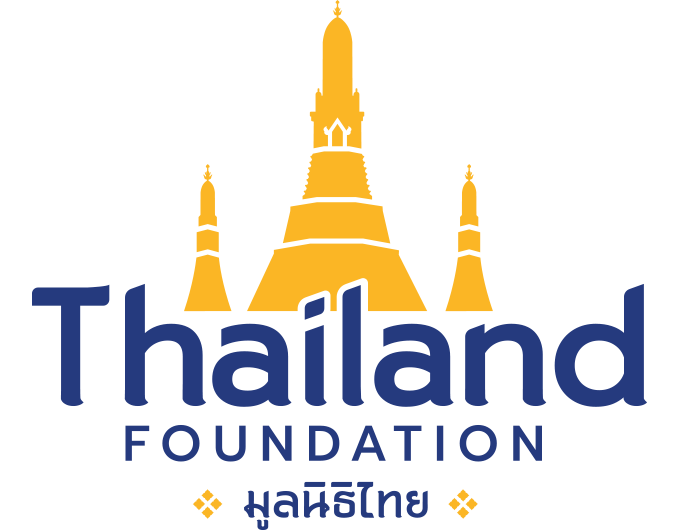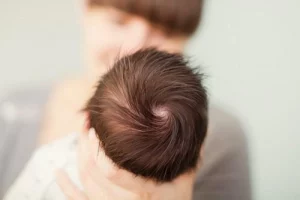Feet Low, Head High: A Guide to Thai Etiquettes
Contents

Thailand welcomes millions of visitors every year. Besides touring stunning landscapes and trying different tasty local dishes, immersing yourself in Thai culture is also an essential and interesting way of enjoying your time in this country. One aspect of Thai culture that often catches newcomers off guard is the emphasis placed on feet and heads. Many foreigners may wonder why Thai people consider touching someone’s head or pointing their feet in certain directions disrespectful. This article will explore the unwritten rules concerning these body parts and how to navigate them gracefully during the stay in Thailand.
The Humble Feet
In Thailand, and many other East and Southeast Asian countries, the feet are considered the lowest and least pure part of our bodies. This is not only because they are located at the lowest point of the body, but they are also constantly on the ground. In the past, when Thai people still walked barefoot from place to place, their feet became soiled. So, a large earthen jar would be placed in front of every dwelling for the family members and visitors to clean their feet before stepping inside. Even as footwear became a necessity, the cultural perception of feet as impure persists. Thus, many Thai people still wash their feet right after returning home.
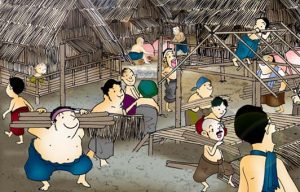
Cr. bloggang.com
This lowly status of the feet in Thai culture also leads to some significant traditions. The first one is the way Thai people pay respect to those they highly revere, such as of their parents or elders. By touching or lowering yourself to lowest part of another person’s body, you are demonstrating the uttermost sense of humility towards that person. To do so, Thais would press their hands together in a wai gesture and bow down to place them on the feet of the revered individual. This practice is usually done during a ceremony or important occasion as it is the way to show the most respect and reverence towards the recipient, as opposed to the common act of paying respect in everyday life where people just press their hands together at the chest level and bow their head down. Apart from that, during occasions like Mother’s or Father’s Day and Songkran Day, Thai people traditionally wash their parents’ feet with water in a basin. The water is sometimes scented. This is an act of showing gratitude towards their parents, asking for forgiveness and blessings, and also making good merit by taking care of them.
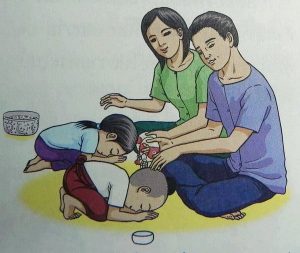
Cr. ฅนขลัง คลังวิชา
The Sacred Head
Contrary to the feet, the head symbolizes the highest and, thus, most sacred point of the body. This belief is reflected in the way Thai people navigate their lives. For example, placing important or sacred objects such as Buddha images or the pictures of their ancestors above their heads, bowing their heads down when greeting or walking past elders, and not sitting or stepping on pillows where the head rests. Since Thai people place much importance on the head, anything bad that happens to them is an important matter. An idiom that “ไม่มีเงาหัว” in Thai, directly translated as “one has no shadow of the head”, means a bad omen; if a person has no shadow of the head, it can be considered symbolic of being beheaded and is believed to be a sign of great misfortune.
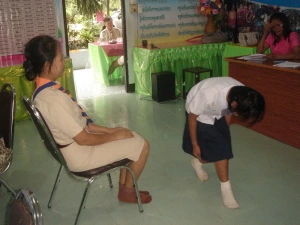
Bowing one’s head down when walking past elders
Cr. kanlayamilk5556.wordpress.com
Thai belief about the head being the holiest place of our bodies was documented by foreign travelers, as observed in Le Royaume de Siam written in 1868 by Amédée Gréhan, a French who was appointed by King Rama IV to be the first Thai consul general in Paris. In his book, Gréhan stated that the head is most sacred for the Siamese and that no one, including the slaves, would let others lay their hands on this part of their bodies. Moreover, they revered the head so much that they refused to live in a house where someone else lived upstairs. Of course, Thais today are fine living in a two-story house, but the taboo against touching other people’s head remain.
The emphasis on the head is also displayed in Buddhist rituals and ceremonies: when a monk blesses people with holy water, he usually sprinkles it on their heads, and when a man decides to become a monk, he has to shave his head before the ordination which is considered a profound act of renunciation.
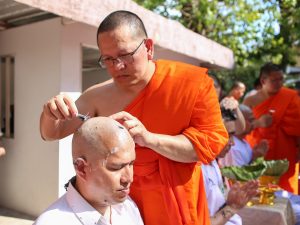
A man has to shave his head before becoming a monk
Cr. manasikul.com
Apart from the head being sacred because of its highest position, Thai people also believe that the crown of the head houses an individual’s spiritual energy called khwan (ขวัญ). Kwan has no physical shape, but Thai folklore suggests that it can grow along with its owner. When Thais are still babies, their khwan is easily frightened and may flee the bodies and only return when the fright is over. As they grow up, their khwan becomes stronger and braver. However, there are still various rituals performed for a person at every stage of life to make khwan stay with them until their last days.
Khwan (ขวัญ)
The Cultural “Don’ts” for Feet and Heads
There are various taboos and cultural practices that reflect Thai belief in the lowliness of the feet and the holiness of the heads. Here are some examples of what are considered no-no’s for Thai people:
- Touching someone’s head:
As Thai people believe that their head is the most sacred part of the body and is the dwelling of khwan, touching others’ heads is considered very offensive. Even with adorable children, refrain from touching their heads or ruffling their hair. Moreover, passing things over someone’s head should also be avoided at all costs.
- Standing, sitting, or walking in the position where one’s body is above the elders’ heads:
It is disrespectful for people to stand near the sitting elders or sit on the chair while they are sitting on the floor. This is because their body will be higher than the elders’ heads which indicates disrespect towards the older people. When one needs to move past the seated adults or monks, one should lower the body by crouching or walking on the knees.
- Not taking shoes off before entering premises:
When visiting a Temple, it is required to remove the shoes before entering the chapel where Buddha images are housed or in special areas such as the vicinity of a stupa as to not bring dirt into these scared spaces. However, one can still have their shoes on when walking around the temple grounds. Similarly, when going into a Thai person’s house, the footwear should always be removed no matter how humble or extravagant the house may look.
- Stepping on the threshold of a temple
The raised threshold of a temple or, less commonly, a house is believed to be the residence of the guardian spirit of the building. Stepping on it might bring bad luck to that person.
- Pointing one’s feet at other people or sacred objects:
As feet are considered dirty, it is rude to point one’s feet, especially the sole, at other people, or revered objects like Buddha images. To avoid such situations where they might offend other people, people usually sit and tuck their feet underneath the body or sit cross-legged.
- Resting one’s feet in high positions:
One should never rest their feet in high places such as on a table or a car’s dashboard since a table is considered a place for meals and communal activities and a dashboard is believed to be the place where a guardian goddess of the car stays. In fact, even stepping over pillows or books is considered disrespectful as they are a place where the head rests and the source of knowledge.
A Deeper Look
The Thai cultural emphasis on feet and heads serves as a manifestation of the Thai core value placed on respect and courtesy. By observing these unwritten rules, Thai people display a refined awareness of the significance assigned to different parts of the body. Thus, respect for Thai people does not only pertain to “conventional” actions, but also includes the “symbolic” value each body part has in interacting with other people, places, objects, and entities. The act of paying respect to elders during ceremonies, or the ritual of washing parents’ feet, exemplifies a profound sense of respect towards their revered figures. Similarly, avoiding disrespectful actions such as pointing their feet at others or sacred objects, or resting their feet on a high surface reflects a collective commitment to maintain respect towards each other and their personal space, upholding peace in the society.
Conclusion
The beliefs and cultural etiquettes surrounding feet and heads in Thailand make up its unique traditions ingrained with such core values as respect and courtesy. Approaching these customs with mindfulness and understanding not only enhances your experience in Thailand but also opens doors to meaningful connections with the friendly and hospitable Thai community.
Sources
https://www.posttoday.com/politics/397177
https://www.matichonweekly.com/column/article_631669
https://www.sanook.com/horoscope/115717/
https://www.doe.go.th/prd/assets/upload/files/strategy_th/20c6407b730d40a01079370502410e4d.pdf
https://chailaiorchid.com/blog/thai-temples/
Author: Thanachporn Varapongsittikul
Editor: Tayud Mongkolrat
16 February 2024
